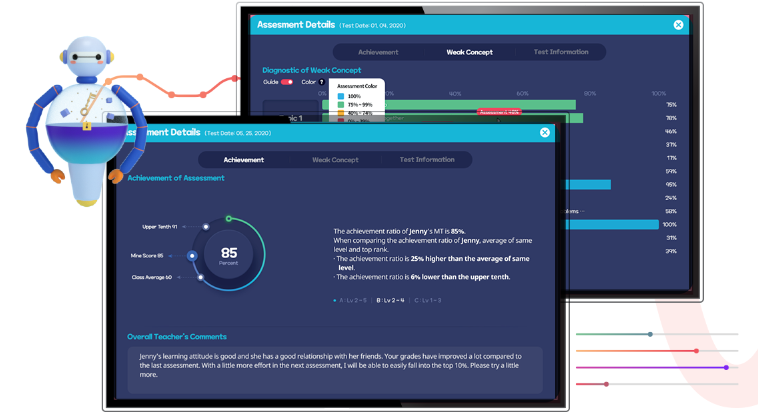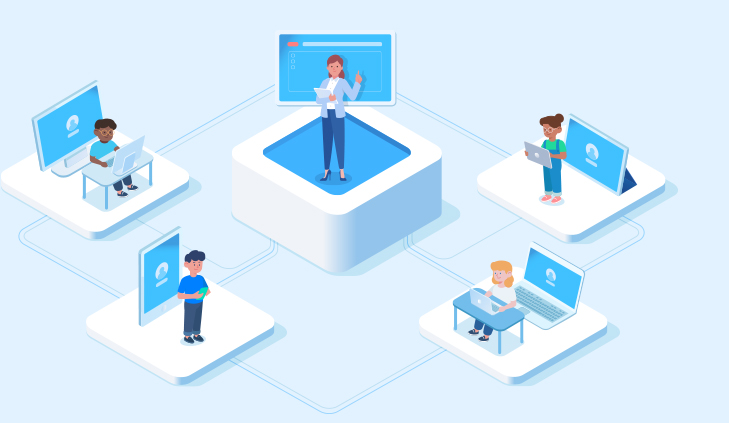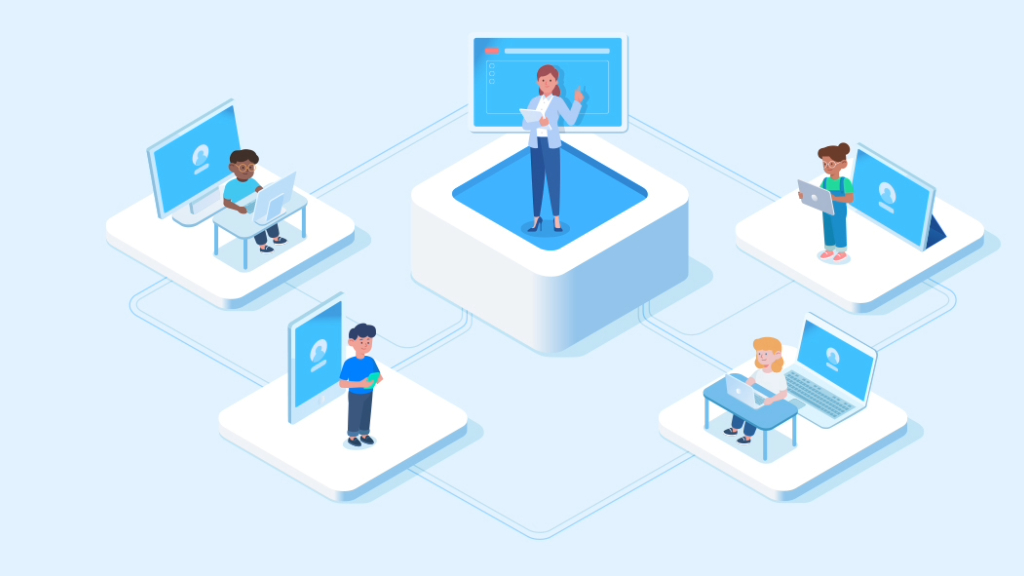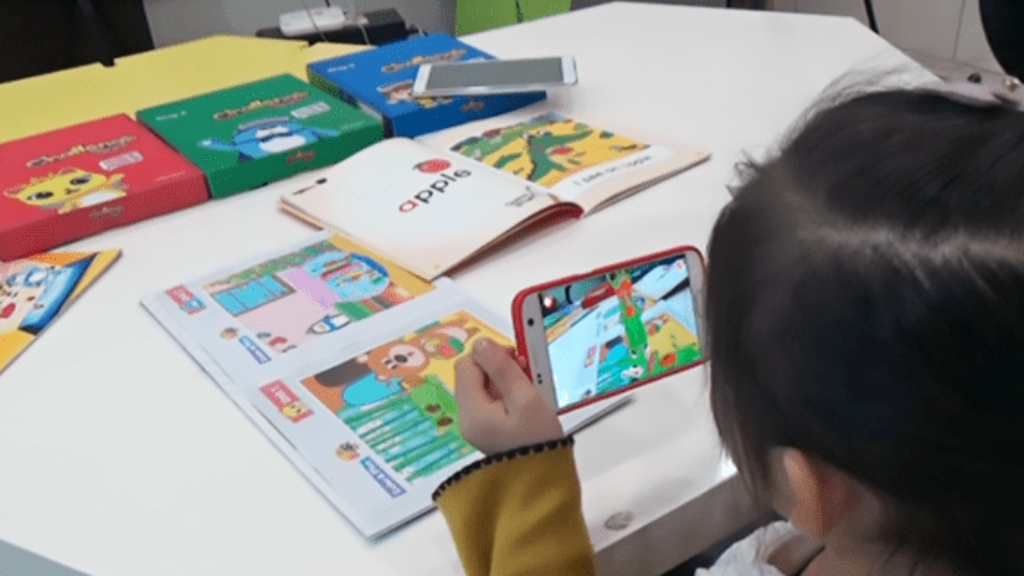Hello! Today we will have an in-depth conversation with Eunwoo Lee, CP, a senior researcher at the AI Research Center for Visang, about the prospects of edtech and future education. In the 2022 Korean curriculum revision, matrix’ was reintroduced into the high school math curriculum after 15 years as a basic concept for artificial intelligence (AI). At this time of change, we will interview Mrs. Eunwoo Lee about the importance and future direction of SW-AI education. Mrs. Eunwoo Lee, thank you for your time. Let’s get started with our interview.
Q. As SW-AI education is a hot topic of this era, what do you think about the current state of relevant education in Korea?
Since the era of SW education and AI, mathematical logic and problem-solving skills have been emphasized. But still, matrices were previously removed from the required subjects of the revised Korean curriculum in 2009, as “realizing private education and reducing learning burden” was put first. Many people have expressed concern about this policy.
Now that matrices are back in the curriculum, there is another concern that the learning burden and the suffering of math dropouts will increase. I think this dilemma has arisen because we have not been able to develop a strategy that is attentive to the needs of the times.
Rather than simply making loud claims about the needs of the times, such as the Digital New Deal, digital empowerment, and fostering SW-AI core talent, a deep and insightful implementation plan should be planned ahead.
Q. Some people may be unfamiliar with the concept of SW-AI education. Please tell us how you would define SW-AI education.
SW education is considered general computer usage education, and AI education, which has become a hot topic in this era, can be regarded as education on AI understanding and utilization. When referring to AI education, various terms such as ‘AI in Education (AIED)’, ‘Artificial Intelligence-Based Education (AIBE)’, and ‘AI Education’ are used interchangeably.
However, there is general agreement that AI education can be categorized into two aspects: AI as educational content and AI as educational tools.
Q. You mentioned that AI education can be divided into two aspects: ‘AI as educational content’ and ‘AI as an educational tool.’ Please give us more insights about these aspects.
As mentioned earlier, AI education is a concept that encompasses two aspects, which are AI as educational content and AI as educational tools. AI as educational content is education to understand concepts and principles and acquire related skills and attitudes. For example, students learn about matrices and vectors to build a foundation for AI learning and then analyze data, deduce algorithms, and create AI models.
AI as an educational tool, for example, can be a class in which students learn and utilize the functions of AI mini speakers in the classroom or class in an intelligent educational environment through various AI platforms. These many types of classes can be regarded as AI education.
Q. How are major countries in the world working on AI education?

Major countries around the globe are already implementing AI education in stages, starting from early childhood. In 2017, China released its ‘Next Generation AI Development Plan’ and published 33 ‘AI Experiment Textbooks’ for toddlers. The UK offers AI-related computing courses from age 5 to high school, and Finland also operates schools that offer coding classes at age 4.
Following this trend, South Korea also released its ‘National Strategy for Artificial Intelligence’ in December 2019, announcing that it will organize a curriculum centered on play and experience. It was intended to naturally develop an understanding and interest in SW and AI in elementary students in their lower grades.
Q. Why do you think SW-AI education is crucial in the digital transformation era?
SW and AI are spreading rapidly in all areas of our society. When looking back, we learned writing to live in a civilized society and learned English as part of globalization. This learning allowed us to communicate freely with foreigners and understand various information and cultures in the world according to our own capabilities. In the future, just like in English, understanding SW and AI will be essential to communicating freely across the world.
Just as you can’t understand information in English without knowing English, if you don’t know SW and AI, you can’t be active on platforms with SW and AI or enjoy culture. Ignorance of SW and AI means living in a digitally civilized society would become a challenge.
Q. Have you ever realized the power of SW-AI training?

My grandmother has been attending the ‘Digital Competency Education for the Elderly’ course at the ward office for quite some time, and she even has a Facebook account. She uses the AI speaker assistant not only to send messages but also to make video calls to her children and grandchildren.
The other day, my grandmother sent me a video on KakaoTalk, singing “Life is good” and writing, “Thanks for the message. Take care of yourself.” Regardless of age, SW-AI training is an important education that will help you develop essential skills to live in the future.
Q. Finally, what are your insights on what direction SW-AI education should take in the future?
I believe that EdTech-based SW-AI education should be universalized and sustained in some form for everyone, from infants to the elderly, not just discussed in the curriculum. In the process of SW-AI education, we need to listen to different voices from different sectors of society with a mature mind and make sure that we are able to compete as global cultural citizens.

Today’s interview with Eunwoo gave us a deep insight into EdTech and AI education. From educational content and the role of AI as a tool to the importance of SW-AI in a digitally civilized society, Eunwoo’s analysis provided us with a new perspective on the future of SW-AI education in our society.
As we discussed today, the ability to understand and utilize SW-AI is essential for living in a future society. We all should put cooperative effort into supporting SW-AI education to foster talented people who will lead our future society.




